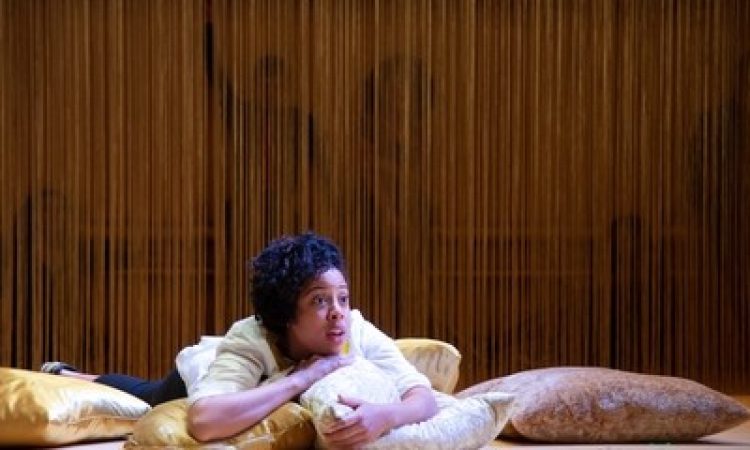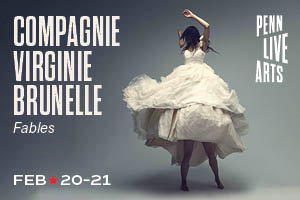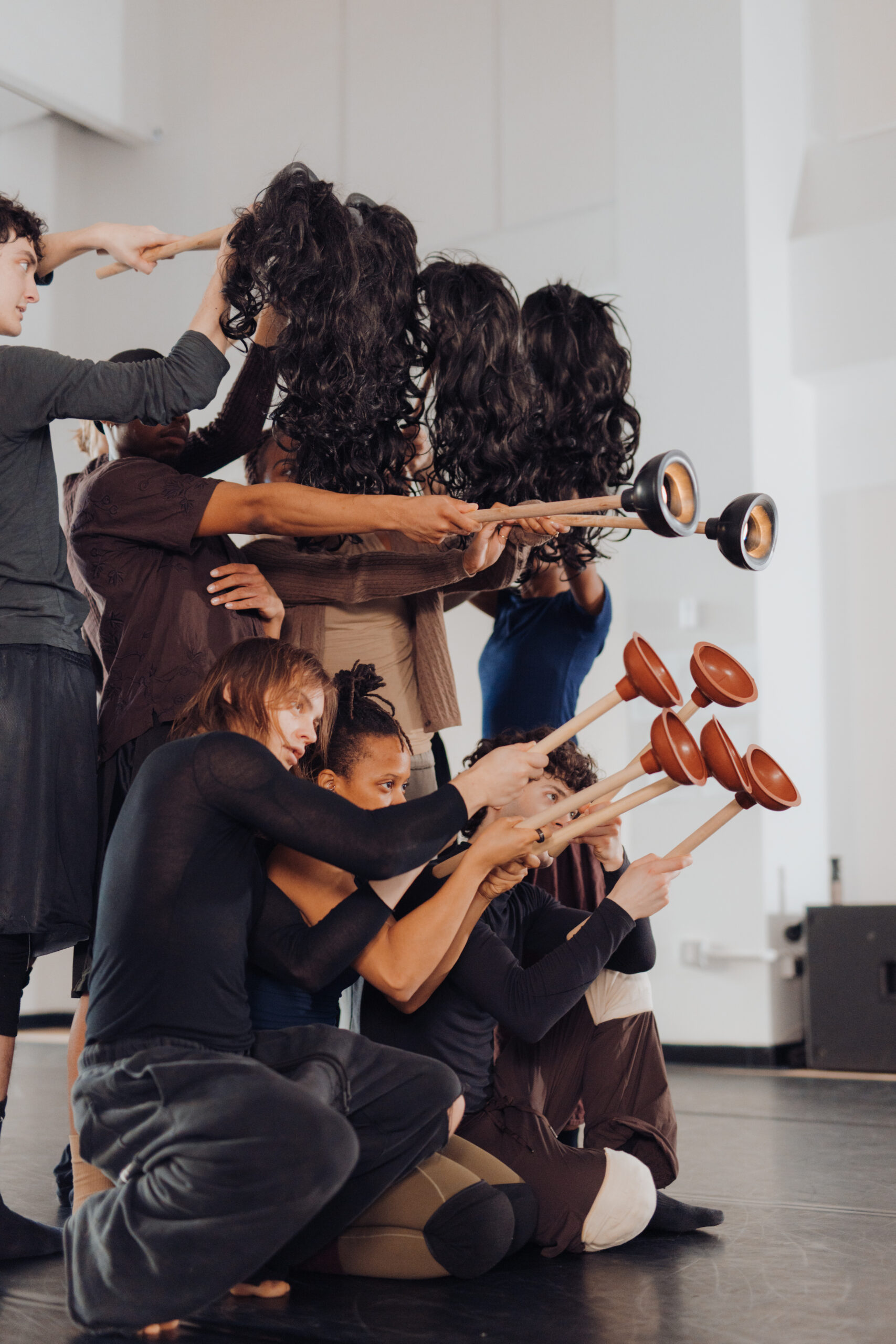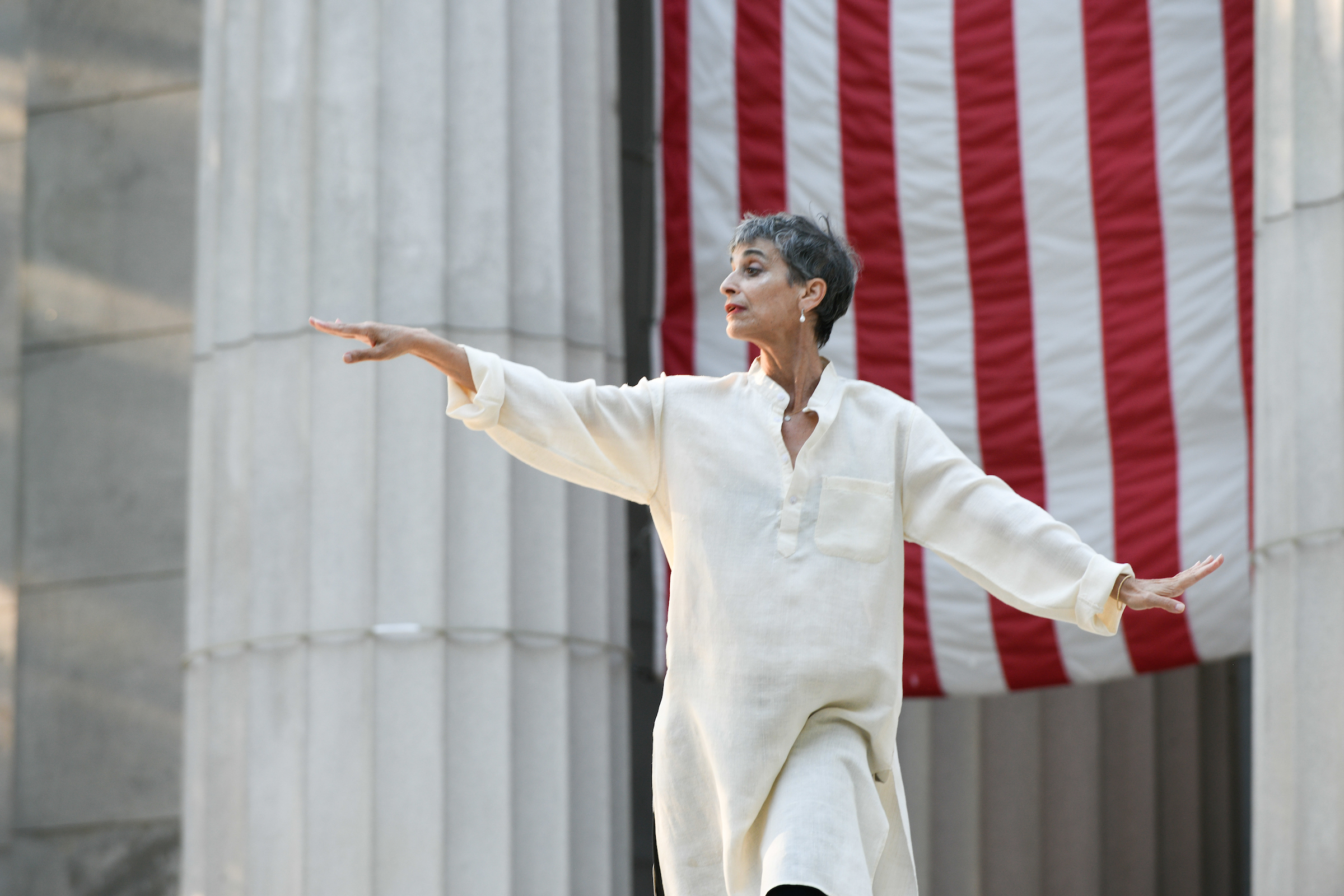In a quest to reach new audiences for performing arts in Philadelphia, Theatre Philadelphia and thINKingDANCE are joining forces and exploring how dance writing and discourse can provide new perspectives on theater. Beginning May 2018, tD writers have been lending their varied backgrounds, interests, and approaches to criticism to professional works of theater in Philadelphia. Let us know what you think in the comments!
The Wilma’s production of Romeo and Juliet worked hard not to be “the play your eighth grade teacher made you read” (says the press release), and it showed. By snipping into Shakespeare’s language, pasting in a rebellious teen chorus and a bit of modern politics, director Blanka Zizka and cast collaged the play. Some alterations worked with the text and some fought it.
First, the litmus test of any R&J: the lovers. I was excited to see Matteo Scammell tackle Romeo. He makes a grand entrance, chin leading his drooping body onto the stage, where he collapses to the floor magnificently, weighed down by his love for… Rosalind. When he hits the floor again later with love for Juliet, it’s with only a fraction more sincerity. If I can’t believe in Romeo’s love, what endears me to him? What excuses his actions? Throughout the show, Scammell uses all the intense physicality he wielded to great effect in Sweat and Hello Blackout!, but his Romeo comes off as melodramatic to a fault, his volume ratcheted to 11 for most of the show. In the fifth act, pursuing his suicide, Scammell’s Romeo throws a gigantic wad of cash at the poor and heavily implied drug-addict apothecary. Instead of desperately in love, Romeo reads as an entitled paradigm of toxic masculinity.
Taysha Marie Canalas commits to Juliet’s honest passion with gusto. Waiting for Romeo in her bedroom, she drapes herself onto a pile of golden pillows on the floor. “Come night, come Romeo.” She presses her body into the pillows, languid, but frustrated. It’s a real, deeply relatable moment. Unfortunately, Zizka too often has Canalas play for comic effect, as in the moment Juliet decides to drink the Friar’s death-imitating potion. Canalas goes to sip, but as she’s about to drink, her eyes widen with a new idea, and she stops to speak it. It’s almost slapstick; the audience giggles as she shares each new fear. This is the first moment where Juliet is forced to act completely alone, under great stress and danger. I want to be there with her, not laughing at her.
The deeply edited text omits many plot details, leaving time for us to linger on Maria Shaplin’s luscious lighting design, for the chorus to reorganize the stylishly modular set (dominated by a gilded wall), and for Gracie Martin’s original songs. Martin is one of the joys of this production, with her beautifully clear vocal tone and sharp physical presence. However, Zizka makes no attempt to tether her to any of Shakespeare’s characters or to the text. I long for more investment in Shakespeare’s language, which feels left by the curb, deemed unsuitable to carry the emotions the production wishes to convey. Mercutio’s Queen Mab speech is cut in favor of a contemporary version, spat passionately by Anthony Martinez-Briggs. Instead of using Shakespeare’s prologue, the company fills the stage, faces the audience, and intones “marriage, love, hate, murder.” This devised-theater tactic needs to land in the tropes-to-be-thrown-out bin.
Dramaturg Walter Bilderback notes in the program that, though Shakespeare borrowed the major plot of R&J, his ending, “honoring the lovers and their death, was a radical departure.” Zizka’s even more radical version concludes with no reconciliation of the warring families. Instead, the teen ensemble surrounds the dead. They speak:
“I don’t want to live in a world like this.”
“Fuck this.”
Martin perches on top of the wall, singing about gun violence and about tearing down walls. The chorus climbs the wall and disappears out of sight.
As the audience gives a standing ovation, I puzzle over this ending. So, the children will save us? Do the adults in power (or the donors in the audience) need to change? I for one would be elated to see Steven Rishard, as Lord Capulet, play the original final scene, feeling the loss of his child and vowing to work toward peace.
The connection drawn between the deaths of Romeo and Juliet and school shootings is dubious at best; the motivations and circumstances of those two tragedies are utterly different. What political or narrative point is Zizka making, except that the deaths of children are tragic? West Side Story, by contrast, uses Shakespeare’s plot to cut to the heart of issues that still feel relevant today. The enmity between Sharks and Jets is a poignant comment on our segregated society and gang violence. That adaptation’s radical departures from the text pack an emotional punch, while this one’s falter.
The school showings of The Wilma’s Romeo and Juliet are sold out. If this production sucks students into the magic that is Shakespeare, maybe some of them will be inspired to create adaptations of his work that truly cut to the jugular.
Romeo and Juliet, The Wilma Theater, January 15-February 9.
To join the conversation, follow thINKingDANCE and Theatre Philadelphia online and on social media to read, share, and comment.






